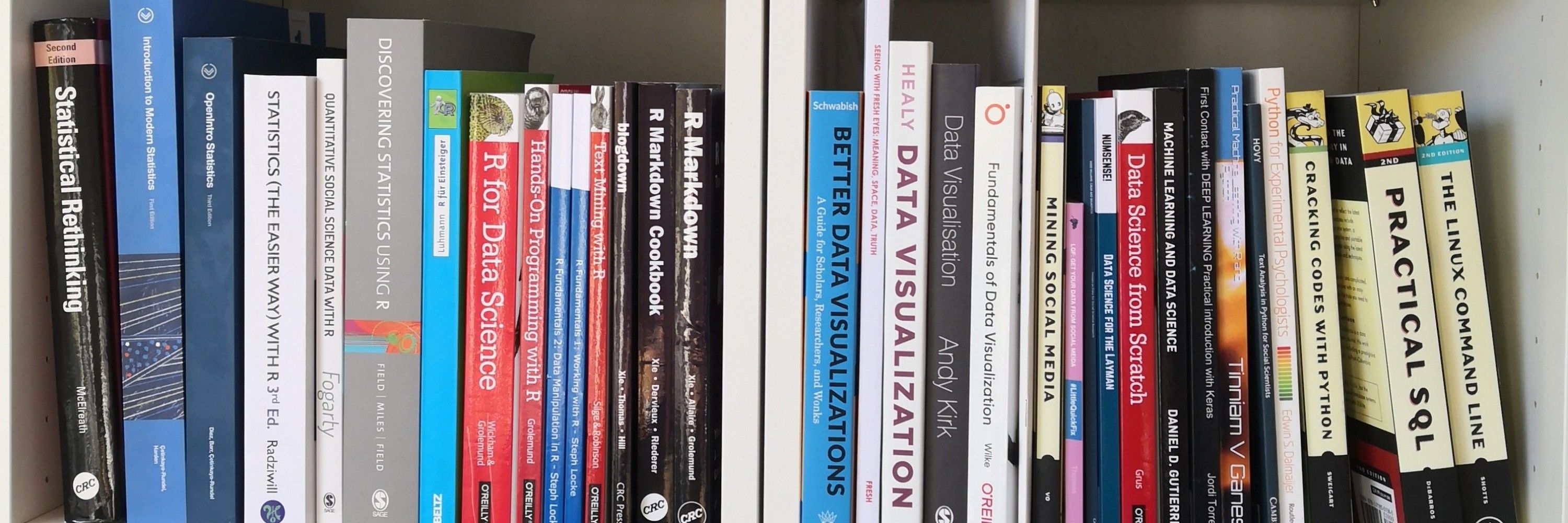
Professor of Digital Social Science @unidue.bsky.social and head of the team Research Data & Methods @cais-research.bsky.social
Interested in digital traces | computational social science | reproducibility | open science | #rstats
www.johannesbreuer.com ..
more
Professor of Digital Social Science @unidue.bsky.social and head of the team Research Data & Methods @cais-research.bsky.social
Interested in digital traces | computational social science | reproducibility | open science | #rstats
www.johannesbreuer.com
Reposted by Johannes Breuer

Still “Immigration” is currently being used to terrorize & traumatize American communities.
He is not as popular as he wants you to believe. His policies aren’t either. Quite the opposite.

www.joxleywrites.jmoxley.co.uk/p/airport-bo...
1. The deadline for nominating a person or group for the Nobel Peace Prize is Feb. 1.
2. History professors are qualified nominators.
3. The people of Minnesota have been awe-inspiringly peaceful in the face of state violence.
4. He would be so mad.

Did you know you can nominate people for the Nobel Peace Prize?
Reposted by Johannes Breuer


1. The deadline for nominating a person or group for the Nobel Peace Prize is Feb. 1.
2. History professors are qualified nominators.
3. The people of Minnesota have been awe-inspiringly peaceful in the face of state violence.
4. He would be so mad.
Reposted by Johannes Breuer
Powered by JupyterLite and WebAssembly, it supports Python, R, C++, and a full in-browser terminal experience.
📖 Read the full story: medium.com/@QuantStack/...
Reposted by Johannes Breuer, Florian Keusch

6-month program for early-career researchers: data quality, processing & networking. Online blended learning, Mar–Sep.
Apply by 8 Feb ➡️ www.gesis.org/en/gesis-tra...

The DDC is expanding its team with *4* new opportunities for researchers passionate about the intersection of AI, media, democracy, & society.
Deadline: 📅 Feb 15 for 3 of these roles!
The Professorship deadline follows in March.🧵👇
Reposted by Patrick Präg, Johannes Breuer

youtu.be/FjHTtCeFm0g?...
The event was organised by ReproducibiliTea UniBasel
Reposted by Johannes Breuer


Application link: lnkd.in/diPw3uMY
Application deadline: 2 March 2026
Announcement of decisions: Mid-April
22 - 30 June: 'Pre-SICSS Bootcamp'
6 - 17 July: Residential SICSS retreat
Reposted by Johannes Breuer
Keynotes: @lauraknelson.bsky.social and @lorenzspreen.bsky.social
computational-social-science.org/workshops/20...
Reposted by Andrew K Przybylski, Johannes Breuer

Reposted by Johannes Breuer
milanlproc.github.io/open_positio...

Last night a preprint dropped that tries to get at this with some numbers. My piece in @science.org (and 🧪🧵 coming):
Reposted by Johannes Breuer

More infos at t1p.de/WebTrackingD...
Reposted by Johannes Breuer
We are excited to officially announce CORTRE: COmplete Reporting for Transparent Reproducibility Efforts 🎯
🧵👇
Reposted by Johannes Breuer
Reposted by Johannes Breuer


Come to the DSI June 15-18th with @cailinmeister.bsky.social, @katestarbird.bsky.social, @jevinwest.bsky.social, @rcalo.bsky.social, @naomioreskes.bsky.social, @emmaspiro.bsky.social, and many more.
disinfoinstitute.org
Reposted by Johannes Breuer

#IranRevolution

xkcd.com/1289/
Reposted by Johannes Breuer
Reposted by Johannes Breuer

📄 muellerstefan.net/teaching/202... (PDF)

Reposted by Johannes Breuer

➡️ Register and find all the details t1p.de/Intro_Geospa...
@gesis.org @astroppe.bsky.social
doi.org/10.4232/1.14...

We analyzed 100 survey experiments fielded by TESS (tessexperiments.org), using only information from the proposals to identify intended hypotheses.
Here are some of the things we learned:
Reposted by David Lazer, Axel Bruns, Luca Rossi , and 1 more David Lazer, Axel Bruns, Luca Rossi, Johannes Breuer

Reposted by Johannes Breuer

Reposted by Johannes Breuer

Learn core Bayesian concepts and workflow, use brms for off-the-shelf modeling solutions, and develop custom Stan models tailored to your questions – hands‑on in R.
Info ➡️ t1p.de/bayesian-mod...


